11 start with R start with R

Mental illness is the poor, and somehow "damaged," cousin to physical ailments in the eyes of too many in our society. Compare the difference in how people would respond to someone who had fallen and broken their leg on the street, to how most react to those mentally ill among us, on those same streets, who spend their winters on steam grates and forage for food in dumpsters. Rationing Sanity is a provocative analysis of the mental health care system in the United States, dealing with issues of justice and access to mental health care.
How should a decent society, affluent but facing many serious calls on its resources, best care for citizens afflicted with severe and persistent mental illnesses? James Lindemann Nelson brings together, for the first time, scholars of the ethics of mental health care and top managed care policy analysts to address this crucial problem. Rationing Sanity integrates those perspectives with the thoughtful practice-based experience of physicians well versed in the actual care of people with emotional and behavioral problems. Over a period of years, the contributors met face-to-face to engage each other on the ethics of managed mental health care—the result is a unique, collaborative effort that provides a wealth of important new insights on not only how Americans can readjust their attitudes toward the mentally ill—but also how we may find more just and humane treatment for those afflicted.
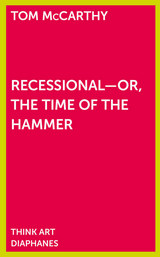
The latest edition in Diaphanes’s THINK ART series, which explores the cultural and theoretical impact of artistic processes, Recessional—Or, the Time of the Hammer opens with an essay by McCarthy on recessional time as an aesthetic element and literary device. This essay is followed by an interview with McCarthy, in which he further discusses his own writing process, taking his most recent novel, Satin Island, as the starting point and casting new light on both avant-garde and realist literature.
Praise for Remainder
“An avant-garde challenge. . . . [McCarthy is] one of the great English novelists of the past ten years.”—Zadie Smith
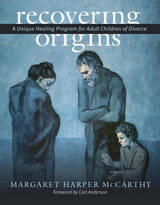
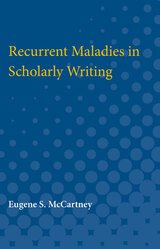

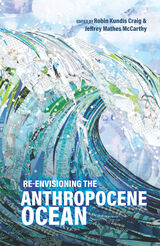
The world is at a critical moment, when humans must grapple with thinking about the planet’s oceans from ecological, physical, social, and legal perspectives. Warming ocean temperatures, changing currents, cultural displacement, Indigenous resilience, melting polar ice, habitat loss, are but a few of the global issues reflected in the planetary ocean as a front line in the unfolding drama of climate change. Re-envisioning the Anthropocene Ocean brings together leading scientists, lawyers, humanists, and Indigenous voices to tell of the ocean’s precarious position in the twenty-first century. The contributors affirm that the planetary ocean is crucial to our well-being and overdue for a positive change in public action to enhance the world’s resilience to climate change, ocean acidification, and other stressors. These essays engage that important work of positively re-imagining the ocean in the Anthropocene.
This volume brings diverse perspectives to the planet’s ocean future. New essays are contextualized with narratives woven by earlier ocean writers, showing readers how past perceptions of the ocean have led us to where we are today in terms of both problems and potential new visions. In this one volume, readers experience both the history of humanity’s multi- and interdisciplinary interactions with the ocean, find new perspectives on that history, and discover ideas for looking forward.
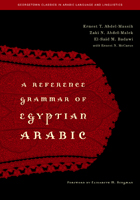
Originally published in 1979, this classic reference work presents definitions of grammatical and linguistic terms for spoken Egyptian Arabic in dictionary form from "active participles" through "writing system." Entries feature definitions and examples of all the grammatical features including phonology, morphology, and syntax. Aimed at the intermediate to advanced student of Egyptian Arabic, this volume presupposes a basic knowledge of Egyptian Arabic. Arabic lexical items are presented in romanized transliteration and are therefore accessible to those who are not familiar with Arabic script.
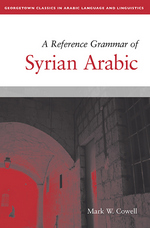
This important reissue, enhanced with free downloadable MP3 files to supplement the first chapter of the text (sounds), is another addition to Georgetown's world-renowned Arabic language-learning materials and is considered to be one of the most outstanding descriptions of any Arabic dialect written for the English-speaking world. It is comprehensive in its coverage—ranging from phonology (how sounds are organized and used) to morphology (sound, syllable, and word structure), with an analysis that is insightful and original. It contains hints on how to master nuances in dialectical pronunciation, as well as the differences of meaning in their various forms.
Based on the dialect of Damascus, the language covered here is part of what has variously been called "Syrian Arabic," "Eastern Arabic," and "Levantine Arabic," encompassing the dialects of Beirut, Amman, and Jerusalem—as well as Damascus—with references made to regional variants. In a world drawn ever closer to events in the Middle East, this comprehensive grammar reference is yet another extraordinary addition to the growing library of Arabic language-learning materials published by Georgetown University Press.
Accompanying MP3 files are available for download from the book’s webpage at press.georgetown.edu.

This important reissue, enhanced with an audio CD to supplement the first chapter of the text (sounds), is another addition to Georgetown's world-renowned Arabic language-learning materials and is considered to be one of the most outstanding descriptions of any Arabic dialect written for the English-speaking world. It is comprehensive in its coverage—ranging from phonology (how sounds are organized and used) to morphology (sound, syllable, and word structure), with an analysis that is insightful and original. It contains hints on how to master nuances in dialectical pronunciation, as well as the differences of meaning in their various forms.
Based on the dialect of Damascus, the language covered here is part of what has variously been called "Syrian Arabic," "Eastern Arabic," and "Levantine Arabic," encompassing the dialects of Beirut, Amman, and Jerusalem—as well as Damascus—with references made to regional variants. In a world drawn ever closer to events in the Middle East, this comprehensive grammar reference is yet another extraordinary addition to the growing library of Arabic language-learning materials published by Georgetown University Press.
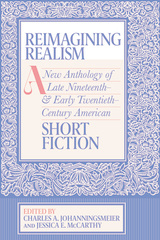
This innovative collection reinvents the standard American short fiction anthology and offers readers an invigorated, inclusive, and nuanced understanding of American literary history and culture from the Civil War to the end of World War I.
Beginning with one of Louisa May Alcott’s Hospital Sketches, originally published in 1863, this anthology offers a refreshing perspective on American literature from the latter half of the nineteenth century through the first decades of the twentieth. Based on Alcott’s brief stint as a Civil War nurse, Hospital Sketches stands in contrast to the sentimentality of her better-known Little Women and illustrates a blending of romanticism and realism. Furthermore, its thematic focus on the tension between idealized notions of noble, patriotic duty and the horrific reality of war exemplifies a dominant American cultural mindset at the time.
Following this model of complicating accepted ideas about realism and of particular authors, Reimagining Realism brings together dozens of texts that engage with the immense changes and upheavals that characterized American culture over the next six decades: war, abolition, voting rights, westward expansion, immigration, racism and ethnocentrism, industrial production, labor reforms, transportation, urban growth, journalism, mass media, education, and economic disparity.
Reimagining Realism presents a collection of works much more diverse than what is typically found in other anthologies of short fiction from this era. Some selections are lesser-known works by familiar authors that enable readers to see dimensions of these authors that are rarely considered but deserve further study. The book also features authors from many previously underrepresented groups and includes some outstanding works by authors whose names are almost completely unknown to today’s readers—but which deserve greater attention.
The volume’s editors, in their intent to spur readers to further reimagine realism, to represent the spectrum of viewpoints prevalent during this era, and to spark critical thinking and productive discussion, have been careful not to apply any type of political litmus test to the included works. They have also refrained from categorizing works according to convention, so as not to predispose readers to restrictive interpretations, and have provided only brief, highly readable headnotes and annotations that will help readers better understand the texts.

In Replacement Parts, internationally recognized bioethicist Arthur L. Caplan and coeditors James J. McCartney and Daniel P. Reid assemble seminal writings from medicine, philosophy, economics, and religion that address the ethical challenges raised by organ transplantation. Caplan's new lead essay explains the shortfalls of present policies. From there, book sections take an interdisciplinary approach to fundamental issues like the determination of death and the dead donor rule; the divisive case of using anencephalic infants as organ donors; the sale of cadaveric or live organs; possible strategies for increasing the number of available organs, including market solutions and the idea of presumed consent; and questions surrounding transplant tourism and "gaming the system" by using the media to gain access to organs.
Timely and balanced, Replacement Parts is a first-of-its-kind collection aimed at surgeons, physicians, nurses, and other professionals involved in this essential lifesaving activity that is often fraught with ethical controversy.
READERS
Browse our collection.
PUBLISHERS
See BiblioVault's publisher services.
STUDENT SERVICES
Files for college accessibility offices.
UChicago Accessibility Resources
home | accessibility | search | about | contact us
BiblioVault ® 2001 - 2024
The University of Chicago Press









